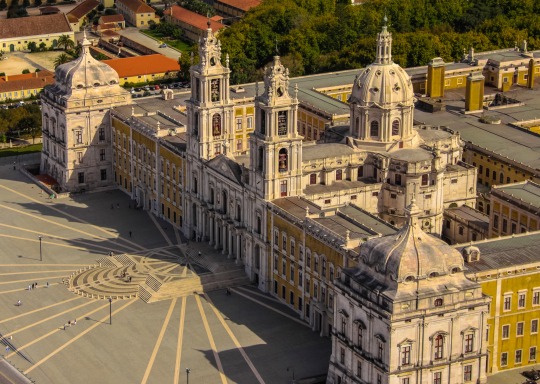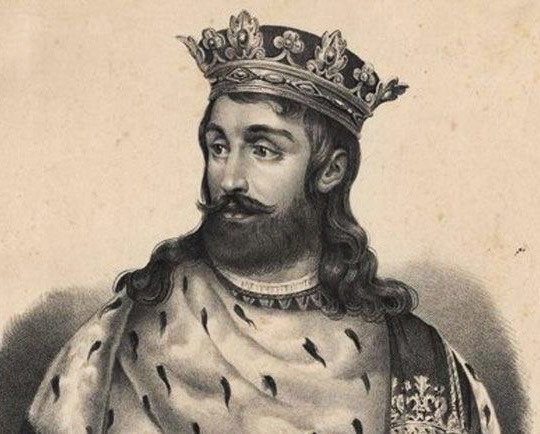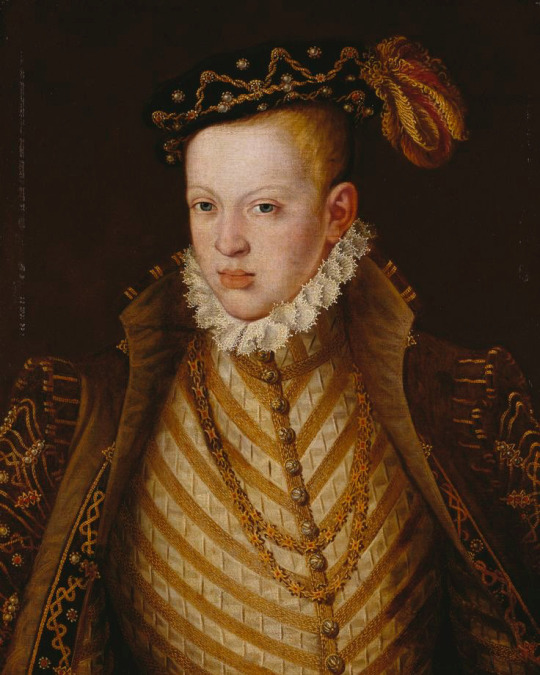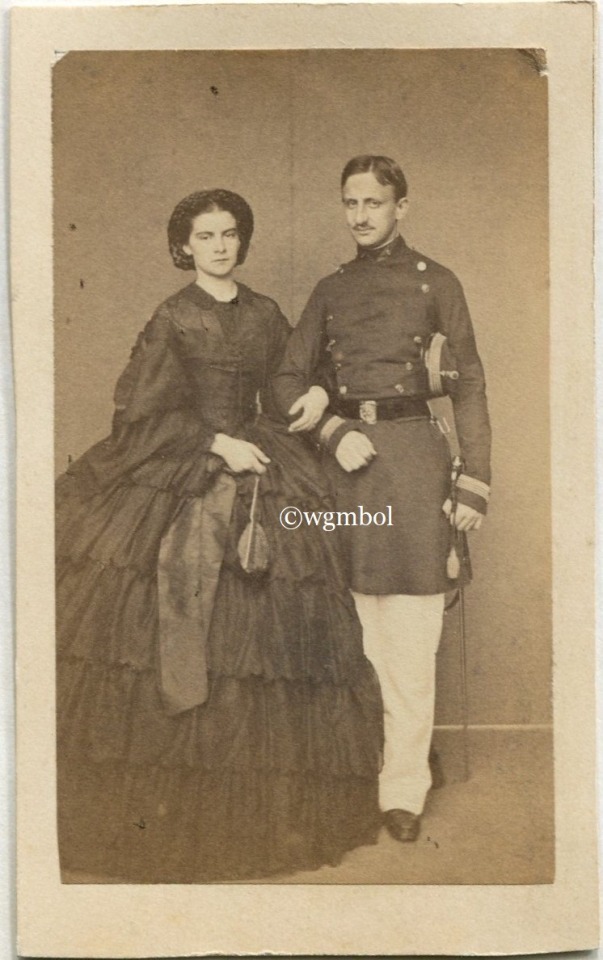#maria de castro
Explore tagged Tumblr posts
Text








Alatriste by Agustín Díaz Yanes (2006, Spain)
Based on the series of novels (Las aventuras del Capitán Alatriste) by Arturo Pérez-Reverte.
#i am not doing fine#this scene kills me each time#wish that was me#look at them#so ardent and doomed#Alatriste by Agustín Díaz Yanes (2006#Spain)#alatriste#las aventuras de capitan alatriste#agustin diaz yanes#cinema#movies#diego alatriste#viggo mortensen#maria de castro#ariadna gil#historical epic#historical movies#war film#adaptation#arturo pérez reverte#period drama#hapsburg spain#capitan alatriste#romance#romantic#tragic romance#baroque
10 notes
·
View notes
Text
MELHORES DO ANO | LITERATURA
Apesar d'eu terminar o ano sem completar meu desafio mensal e anual - até o momento, foram só 45/50 -, eu fiz leituras maravilhosas e aqui estão elas - ordem apenas de leitura:



▪︎ Anna Kariênina - Liev Tolstói
Sinopse: Para Vladímir Nabókov, Anna Kariênina é “uma das maiores histórias de amor da literatura mundial”, e Thomas Mann, no prefácio incluído neste volume, o considera “o romance social mais poderoso” já escrito. Rico panorama da Rússia de fins do século XIX, a obra narra, por um lado, o drama da bela e impetuosa Anna Kariênina, que, infeliz no casamento, enfrenta o julgamento cruel da alta sociedade de Moscou ao assumir sua paixão pelo conde Vrônski. Por outro lado, acompanhamos o proprietário de terras Lióvin ― alter ego do autor ― em sua busca pelo ideal de uma vida feliz no campo ao lado da jovem Kitty, bem como seus dilemas intelectuais em torno da fé e da justiça social. Vertido diretamente do russo por Irineu Franco Perpetuo, que também assina o posfácio, esta nova tradução acompanha todas as nuances do imortal romance de Tolstói, seja na exuberante riqueza de detalhes da narrativa, seja na fascinante profundidade psicológica das personagens.
▪︎ Mariposa Vermelha - Fernanda Castro
Sinopse: cidade de Fragária, sob o domínio da República, a magia é proibida, e Amarílis conhece como ninguém o perigo de quebrar as regras. Para evitar o destino trágico que teve sua mãe, a jovem tecelã mantém a cabeça baixa e os fios de seus poderes bem amarrados.
Quando, por acaso, se vê diante do homem que causou a ruína de sua família, Amarílis decide convocar um demônio e fazer um pacto: ela quer a morte do general que destruiu sua mãe. Mas sua oferenda é muito simples, e Tolú, o Antigo que atende seu chamado, não pode tirar uma vida por um preço tão baixo. Ele pode, porém, ajudar Amarílis a enfrentar seus medos enquanto ela faz justiça com as próprias mãos.
Com uma narrativa delicada e, ao mesmo tempo, sombria, Fernanda Castro conduz o leitor por uma história repleta de personagens fascinantes, horrores mundanos e poderes ocultos.
▪︎ Fique comigo - Ayòbámi Adébáyò
Sinopse: Yejide e Akin se apaixonaram na faculdade e logo se casaram. Apesar de muitos terem esperado que Akin tivesse várias esposas, ele e Yejide sempre concordaram que o marido não seria poligâmico. Porém, após quatro anos de casamento ― e de se consultar com médicos especialistas em fertilidade e curandeiros, tomar chás estranhos e buscar outras curas improváveis ―, Yejide não consegue engravidar.
Ela está certa de que ainda há tempo, mas então a família do marido aparece na sua casa com uma jovem moça que eles apresentam como a segunda esposa de Akin. Furiosa, chocada e lívida de ciúmes, Yejide sabe que o único modo de salvar seu casamento é engravidar. O que, enfim, ela consegue ― mas a um custo muito maior do que poderia ter imaginado.
Um romance eletrizante e de enorme poder emocional, Fique comigo não apenas debate as questões familiares e tradicionais da sociedade nigeriana, como também demostra com realismo as mazelas e as dificuldades políticas enfrentadas pela população desse país nos anos 1980. No entanto, acima de tudo, o livro faz a pergunta: o quanto estamos dispostos a sacrificar em nome da nossa família?



▪︎ A cabeça do santo - Socorro Acioli
Sinopse: Pouco antes de morrer, a mãe de Samuel lhe faz um último pedido: que ele vá encontrar a avó e o pai que nunca conheceu. Mesmo contrariado, o rapaz cumpre a promessa e faz a pé o caminho de Juazeiro do Norte até a pequena cidade de Candeia, sofrendo todas as agruras do sol impiedoso do sertão do Ceará.
Ao chegar àquela cidade quase fantasma, ele encontra abrigo num lugar curioso: a cabeça oca e gigantesca de uma estátua inacabada de santo Antônio, que jazia separada do resto do corpo. Mas as estranhezas não param aí: Samuel começa a escutar uma confusão de vozes femininas apenas quando está dentro da cabeça. Assustado, se dá conta de que aquilo são as preces que as mulheres fazem ao santo falando de amor.
Seu primeiro contato na cidade será com Francisco, um rapaz de quem logo fica amigo e que resolve ajudá-lo a explorar comercialmente o seu dom da escuta, promovendo casamentos e outras artimanhas amorosas. Antes parada no tempo, a cidade aos poucos volta à vida, à medida que vai sendo tomada por fiéis de todos os cantos, atraídos pelo poder inaudito de Samuel. Em meio a esse tumulto, ele ainda irá se apaixonar por uma voz misteriosa que se destaca entre as tantas outras que ecoam na cabeça do santo.
▪︎ Um defeito de cor - Ana Maria Gonçalves
Sinopse: No livro, Kehinde narra em detalhes a sua captura, a vida como escravizada, os seus amores, as desilusões, os sofrimentos, as viagens em busca de um de seus filhos e de sua religiosidade. Além disso, mostra como conseguiu a sua carta de alforria e, na volta para a África, tornou-se uma empresária bem-sucedida, apesar de todos os percalços e aventuras pelos quais passou. A personagem foi inspirada em Luísa Mahin, que teria sido mãe do poeta Luís Gama e participado da célebre Revolta dos Malês, movimento liderado por escravizados muçulmanos a favor da Abolição.
Pautado em intensa pesquisa documental, Um defeito de cor é um retrato original e pungente da exploração e da luta de africanos na diáspora e de seus descendentes, durante oito décadas da formação da sociedade brasileira.
▪︎ Oração para Desaparecer - Socorro Acioli
Sinopse: Cida, uma mulher sem identidade nem memória, reconstrói pouco a pouco uma nova vida em um lugar completamente desconhecido. Jorge encontra nessa misteriosa estrangeira uma paixão inesperada, que recria o que não parece provável. Do outro lado do Atlântico, Joana é o fantasma de um amor há muitos anos perdido por Miguel.
Quando os quatro personagens se entrecruzam no tempo em busca de respostas para as próprias angústias, se deparam também com uma trama fantástica sobre magia, ancestralidade e pertencimento. Oração para Desaparecer é uma das histórias possíveis sobre o amor e seu poder de dissolver as barreiras do imponderável.

▪︎ Tetralogia Napolitana - Elena Ferrante
A série segue a amizade de duas mulheres ao longo de 60 anos e a história é narrada por uma delas após o desaparecimento da outra. No meio dos conflitos que elas enfrentam intimamente, temos a mudança cultural, social e política acontecendo na Nápoles do século XX, e isso as afeta profundamente.
Eu terminei recentemente e estou completamente viciada na história e se eu começar a falar mais, não irei parar tão cedo. Sendo assim, deixo aqui o que já falei sobre para atiçar a curiosidade de vocês:
ESTOU OBCECADA! | My Brilliant Friend - Elena Ferrante
Um livro ambientado num lugar que deseja conhecer | História do Novo Sobrenome [Tetralogia Napolitana #2] - Elena Ferrante
Foi um ano literário MUITO bom e espero que ano que vem melhore ♡
Até ✌🏼
#literatura#anna karenina#mariposa vermelha#fernanda castro#fique comigo#ayobami adebayo#a cabeça do santo#oração para desaparecer#socorro acioli#um defeito de cor#ana maria gonçalves#tetralogia napolitana#elena ferrante#literatura russa#literatura brasileira#literatura nigeriana#literatura italiana#livros#romance#série literária
5 notes
·
View notes
Text
so i genuinely want to know and read more about pedro i & ines de castro’s story, where can i start with this? would love to know where i can try to find bibliographies (reccomendations are welcome!) or even primary sources
#would like to know where i can get started on this#and if there’s some scholarly work worth reading#personal#maria rambles#medieval history#portuguese history#pedro i#ines de castro#history#historiography
6 notes
·
View notes
Text
Fosil Yüz Parçaları, İnsan Atalarının Batı Avrupa'ya Düşünülenden Çok Daha Önce Geldiğini Ortaya Koyuyor
İspanya’da keşfedilen bir insan akrabasına ait kafatasının sol tarafına ait parçalar, Batı Avrupa’da şimdiye kadar keşfedilen en eski insan atasının yüzünü ortaya çıkardı. İspanya, Sima del Elefante’den H. aff. erectus’un yüzünün sağ tarafının 3D rekreasyonunun yanında parça sol kafatası kemikleri. (Görsel: Maria D. Guillén / IPHES-CERCA / Elena Santos / CENIEH) Yeni bir araştırmaya göre,…
#Atapuerca Dağları#erken pleistosen#evrim#fosil#H.aff. erectus#homo antecessor#homo erectus#indan ataları#Jose Maria Bermudez de Castro#kafatası#Maria Martinon-Torres#neandertal#Pink#Rosa Huguet#Sima del Elefante#İspanya
0 notes
Note
I’ve kinda been interested in learning about royal scandals and drama from history (like could be anywhere in history besides the Princess Diana, Prince Charles, Prince Harry & Meghan stuff since there’s lots of info on that), but every time I try to look it up I just get random websites like “Top 10 Craziest Royal Scandals”. Any source or particular scandal/drama that you’d recommend looking into/starting with?
Here are just a few:
Margaret Campbell, the Dirty Duchess
Catherine of Valois marries Owain ap Tudur
Jacquetta of Luxembourg marries Richard Woodville
The Duke of Cumberland "murders" his valet
Empress Alexandra Feodorovna's letters to Rasputin get leaked
Albert Victor, Duke of Clarence and Avondale gets caught up in both the Jack the Ripper and Cleveland Street scandals.
The death of Madame Araujo and Tsar Alexander I's cover up of her death
The Black Masses and Madame de Montespan
The "poisoning" of Henriette, Duchess d' Orleans
The exile of Julia, daughter of Augustus.
Lady Seymour Worsely
The disappearance of Lord Lucan
The death and coronation of Inez de Castro
The death of Thomas Overbury
Affair of the Poisons
George IV and Maria FitzHerbert
Lola Montez
The death of Ludwig II
The Banquet of Chestnuts
The marriage of Archduke Franz Ferdinand of Austria and his wife, Sophie, Duchess of Hohenberg
The exploits of Sabina, Empress of Rome
The fall of Sejanus
The marriage of Victoria Melita and Grand Duke Kirill
The imprisonment of Sophia Dorothea of Celle and the death of Königsmarck
The loves of Catherine the Great
The marriage of Louis and Edwina Mountbatten
The death of Amy Robsart
The Mayerling Incident
The Kotze Scandal
The death of Infante Alfonso of Spain
The Tour de Nesle Affair
Peter Townsend
George, Duke of Kent and the girl with the silver syringe
Affair of the Diamon Necklace
Wallis Simpson and Herr Ribbentropp
There's a great podcast that just focuses on scandals on Spotify, it's Trashy Royals, you should give it a listen!
42 notes
·
View notes
Text
MCU Recast
Just for fun, I will be recasting the MCU
Notice. Because of the 30 picture limit, will not be able to do them all the pics for the fancasts.
Timothy Olyphant as Iron Man/Tony Stark

Glenn Powell as Captain America

Alexander Skarsgard as Thor Odinson

Hugh Dancy as The Hulk/Bruce Banner

Yuliya Snigir as Black Widow/Natasha Romanoff

Jensen Ackles as Hawkeye/Clint Barton

Idris Elba as Nick Fury(if Ultimate)

Jeffrey Dean Morgan as Nick Fury(if 616)

Morena Baccarin as Maria Hill

Ewan McGregor as Ant-Man/Hank Pym

Mary Elizabeth Winstead as Wasp/Janet Van Dyne

Hiba Abouk as Scarlet Witch/Wanda Maximoff

Jesus Castro as Quicksilver/Pietro Maximoff

Ryan Gosling as Star Lord/Peter Quill

Sofia Boutella as Gamora

Simon Pegg as Rocket Racoon

John Rhys-Davies as Groot

Jason Momoa as Drax the Destroyer

Maggie Q as Mantis

Ana de Armas as Nebula

Christian Bale as Doctor Strange/Stephen Strange

Katee Sackhoff as Captain Marvel/Carol Danvers

Joe Keery as Spider-Man/Peter Parker

Chiwetel Ejiofor as Black Panther/T'Challa

Ben Barnes as Winter Soldier/Bucky Barnes

Robert Pattinson as Daredevil

Alexandra Daddario as Jessica Jones

Trevante Rhodes as Luke Cage

Lewis Tan as Iron Fist/Danny Rand

Frank Grillo as The Punisher/Frank Castle

Jamie Chung as Colleen Wing
Sonequa Martin-Green as Misty Knight
Jesse Plemons as Foggy Nelson
Amanda Seyfried as Karen Page
Yaya DaCosta as Claire Temple
Dakota Fanning as Trish Walker/Hellcat
Stephan James as Malcolm Ducasse
Cary-Hiroyuki Tagawa as Stick
Rainn Wilson as Microchip/David Liberman
Jamie Foxx as War Machine/James "Rhodey" Rhodes
Michael B. Jordan as Sam Wilson
Amy Adams as Pepper Potts
Kevin James as Harold “Happy” Hogan
Christina Ricci as Betty Ross
Léa Seydoux as Sharon Carter
Daisy Ridley as Peggy Carter
Charlie Day as Ant-Man/Scott Lang
Amandla Stenberg as Shuri
Maya Hawke as Hawkeye/Kate Bishop
Sasha Luss as Black Widow/Yelena Belova
(I'm changing the direction of the MCU Spider-Man since there would be no mind wipe at the end of said trilogy, no Iron Man Jr, Peter is in college and already an established hero, there would be no pointless change to MJ's name and I would reframe from basically copying everything about Miles and give all his traits to Peter)
Brendan Fraser as Uncle Ben Parker(flashbacks)
Jamie Lee Curtis as May Parker
Stefanie Scott as Mary Jane Watson
Dylan O'Brien as Harry Osborn
Chloë Grace Moretz as Gwen Stacy
Jake Austin Walker as Flash Thompson
Keira Knightley as Jane Foster
Stellan Skarsgård as Odin
Mark Strong as Charles Xavier
Jacob Elordi as Cyclops/Scott Summers
Liana Liberato as Jean Grey
Matt Berry as Hank McCoy/Beast
Finn Wolfhard as Iceman/Bobby Drake
Mason Dye as Angel/Archangel/Warren Worthington III
Kiki Layne as Storm/Ororo Monroe
Jared Keeso as Wolvine/James "Logan" Howlett
Wyatt Oleff as Kurt Wagner/Nightcrawler
Charles Melton as Warpath/James Proudstar
Sadie Sink as Wolfsbane/Rahne Sinclair
Petr Skvortsov as Piotr Rasputin/Colossus
Maude Apatow as Kitty Pryde/Shadowcat
Victoria Pedretti as Rogue/Ann Marie
Peyton Elizabeth Lee as Jubilee/Jubilation Lee
Olivia Rodrigo as Dazzler/Alison Blaire
Ekaterina Samsonov as Magik/Illyana Rasputina
Sonya Mizuno as Psylocke/Elizabeth “Betsy” Braddock
Esme Creed-Miles as X-23/Laura Kinney
Wolfgang Novogratz as Havok/Scott Summers
Jodie Whittaker as Emma Frost
Dallas Liu as Daken
Kat Graham as Polaris/Lorna Dane
Chad Coleman as Lucas Bishop
Hunter Doohan as Banshee/Sean Cassidy
Austin Butler as Gambit/ Remy LeBeau
Will Arnett as Deadpool/Wade Wilson
Saara Chaudry as Kamala Khan
Madison Reyes as America Chavez
Isaac as Moon Knight/Marc Spector/Steven Grant/Jake Lockley
Andrew Lincoln as Reed Richards/Mr Fantastic
Jodie Comer as Sue Storm/Invisible Woman
Paul Mescal as Human Torch/Johnny Storm
Liev Schreiber as Thing/Ben Grimm
JK Simmons as Iron Monger/Obadiah Stane
Dolph Lundgren as Crimson Dynamo/Anton Vanko(adding Dynamo as I felt not including him was a waste)
Danila Kozlovsky as Whiplash
Bob Odenkirk as Justin Hammer
Chow Yun-Fat as The Mandarin(No Trevor, he's The Mandarin and actually uses the Ten Rings against Tony)
Michael Shannon as Abomination/Emil Blonsky
Mark Gatiss as The Leader/Samuel Sterns
Jamie Campbell Bower as Loki Laufeyson
Christoph Waltz as Red Skull/Johann Shmidt
Cillian Murphy as Baron Helmut Zemo
Javier Bardem as Thanos
Jeremy Irons as Ultron
Matt Smith as Malekith
Sean Bean as Alexander Pierce
Manu Bennett as Crossbones
Iain Glen as Ronan the Accuser
Oded Fehr as Baron Mordo
Brian Cox as Ego The Living Planet
John Malkovich as Vulture
John Goodman as Kingpin/Wilson Fisk
Boyd Holbrook as Bullseye
Tonia Sotiropoulou as Elektra Nachios
Jodie Comer as Typhoid Mary
James McAvoy as Purple Man/Zebediah Killgrave
Common as Cottonmouth/Cornell Stokes
Taraji P. Henson as Mariah Dillard
Barkhad Abdi as Bushmaster
Željko Ivanek as Agent Orange/William Rawlins
Wes Bentley as Jigsaw/Billy Russo
Dev Patel as Davos
Alexander Ludwig as Nuke/Will Simpson
Matthew Rhys as James Wesley
Kate Beckinsale as Vanessa Marianna
Marwan Kenzari as Bakuto
Brian Tee as Nobu Yoshioka
Lucille Soong as Madame Gao
Julianne Moore as Alexandra Reid
Eva Green as Hela
Yahya Abdul-Mateen II as Killmonger/Erik Stevens/N'Jadaka
Andrew Scott as Mysterio
(sidenote, Mysterio wouldn't die and would return to form the Sinister Six which would feature the villains from NWH, but it's the MCU variants, no Multiverse)
Bryan Cranston as Green Goblin/Norman Osborn
Mark Hamill as Doc Ock/Otto Octavius
Sam Worthington as Sandman
Sendhil Ramamurthy as The Lizard/Dr Curt Connors
Aaron Paul as Electro
Naomi Scott as Ghost
Henry Golding as Namor
Jason Isaacs as Magneto/Erik Lensherr
Natalie Dormer as Mystique/Raven Darkholme
Pablo Schreiber as Sabertooth/Victor Creed
King Kerim as Apocalypse/En Sabah Nur
Bryan Cranston as Sebastian Shaw
Christopher Eccleston as Bastion
Matt Smith as Mr Sinister
Nikolaj Coster-Waldau as Adam Warlock
Antony Starr as US Agent/John Walker
Ted Levine as Thaddeus Ross/Red Hulk
Charlie Clapman as Doctor Doom/Victor Von Doom
#Marvel#Fancasts#MCU#Iron Man#Captain America#Thor Odinson#The Hulk#Bruce Banner#Nick Fury#Black Widow#Hawkeye#Maria Hill#The Avengers#Guardians Of The Galaxy#Ant Man#Wasp#Scarlet Witch#Quicksilver#Star Lord#Gamora#Rocket Raccoon#Groot#Drax The Destroyer#Mantis#Nebula#Doctor Strange#Captain Marvel#Spider Man#Black Panther#Bucky Barnes
31 notes
·
View notes
Text
Sugestões de livros
Fica aqui para que parem de me mandar ask. Notem que isto não é só coisas que eu li, são também sugestões de colegas e amigos que confio muito.
Reis e rainhas:
Toda a coleção da Temas e Debates de biografias de reis e rainhas
Rainhas Medievais de Portugal de Ana Rodrigues de Oliveira
As Avis, Joana Bouza Serrano
História de Portugal Geral
História de Portugal tanto do Rui Ramos como do José Mattoso, sendo o segundo da Círculo de Leitores portanto só se consulta em biblioteca e sao livros de cabeceira
Grandes Mistérios da História de Portugal, Fátima Mariano
História, Arte e Literatura, Diogo Ramada Curto
História Global de Portugal (autores Vários)
Portugal na Idade Média, Sérgio Luís de Carvalho
História da Vida Privada em Portugal, José Mattoso (vários volumes por épocas, só estou familiarizada com a Idade Medieval)
Breve História de Portugal / Brevíssima História de Portugal (são 2 livros distintos) A. H. de Oliveira Marques
Al-Andalus
Fath Al-Andalus, Marcos Santos
Lisboa Árabe, Sérgio Luís de Carvalho
Portugal na Espanha Árabe, António Borges Coelho
Cristãos Contra Muçulmanos na Idade Média Peninsular, Carlos de Ayala e Isabel Cristina F. Fernandes (Coord.)
História Judaica e Inquisição
História dos Judeus Portugueses, Carsten L. Wilke
Judeus Portugueses, Esther Mucznik
A Perseguição Aos Judeus e Muçulmanos de Portugal - D. Manuel e o Fim da Tolerância Religiosa (1496-1497), François Soyer
Lisboa Judaica, Sérgio Luís de Carvalho
Inquisição e Cristãos Novos, António José Saraiva
História da Inquisição Portuguesa, Giuseppe Marcocci e José Pedro Paiva
História de Lisboa
Rainha dos Mares (Queen of the Sea em inglês), Barry Hatton
Lisboa Desconhecida e Insólita, Anísio Franco
História Gastronómica de Lisboa, Manuel Paquete
Lisboa em 10 Histórias, Joke Langens
Lisboa Revolucionária, Fernando Rosas
Lisboa no Liberalismo, Victor de Sá
Lisboa Manuelina, Helder Carita
Caminhar por Lisboa, Anísio Franco
Segredos de Lisboa, Inês Ribeiro e Raquel Plicarpo
Diário de um Viajante a Lisboa, Henry Fielding
Era das Luzes
O Marquês de Pombal e a sua Época, J. Lúcio de Azevedo
Século XIX
1808, Laurentino Gomes
A Republicanização da Monarquia, Maria de Fátima Bonifácio
Século XX
O Século XX Português (Vários autores)
Portugal Entre a Paz e a Guerra, 1939 - 1945, Fernando Rosas
Curiosidades, assuntos específicos e tópicos nicho:
Portugal Insólito, Joaquim Fernandes
História Global da Alimentação (Vários autores)
Quinas e Castelos, Miguel Metelo de Seixas
They Went to Portugal, Rose Macaulay
Heroinas Portuguesas, Fina d'Armada
O Pequeno Livro do Grande Terramoto, Rui Tavares
(Des)colonização e raça:
Roteiro Histórico de uma Lisboa Africana, Isabel Castro Henriques
Portugal e o Século XX: Estado-Império e a Descolonização, Fernando Tavares Pimenta
Lisboa Africana, Sérgio Luís de Carvalho
Um Mar da Cor na Terra, Miguel Vale de Almeida
Ecos Coloniais: Histórias, Patrimónios e Memórias, de Ana Guardião, Miguel Bandeira Jerónimo e Paulo Peixoto
Caderno de Memórias Coloniais, Isabel Figueiredo
Escravidão, Laurentino Gomes
"Modo Português de Estar no Mundo": O luso-tropicalismo e a ideologia colonial portuguesa (1933-1961), Cláudia Castelo
Outras cidades:
Porto Insólito e Desconhecido, Germano da Silva
Cascais, Raquel Henriques da Silva
Qualquer livro da Scala sobre qualquer palácio público, inclusive os da Parques Sintra (Mosteiro dos Jerónimos, Palácio da Pena, Palácio da Vila, Mosteiro de Alcobaça que eu tenha)
vou atualizando à medida que vou descobrindo livros por aí
62 notes
·
View notes
Text




















Alatriste by Agustín Díaz Yanes (2006, Spain)
Based on the series of novels (Las aventuras del Capitán Alatriste) by Arturo Pérez-Reverte.
#alatriste#las aventuras de capitan alatriste#agustin diaz yanes#cinema#movies#diego alatriste#viggo mortensen#gualterio malatesta#enrico lo verso#maria de castro#ariadna gil#historical epic#historical movies#war film#adaptation#arturo pérez reverte#period drama#hapsburg spain#capitan alatriste
6 notes
·
View notes
Text
Prince Carlo, Duke of Castro

Physique: Average Build Height: 6'
Prince Carlo of Bourbon-Two Sicilies, Duke of Castro (Born 24 February 1963) is one of the two claimants to the headship of the former House of Bourbon-Two Sicilies. Born at Saint-Raphaël, Var, France, as the only son of Prince Ferdinand, Duke of Castro, and his wife, Chantal de Chevron-Villette. Carlo succeeded to his father's claim as head of the House of the Two Sicilies in 2008 and the use of the title Duke of Castro. This claim is disputed by the Spanish branch of the House of the Two Sicilies.





A damn good looking man who looks like he would be a great fucker in bed. Every time I saw his pics… instant hard on. But I kept forgetting to look up his name until now.





Well, Prince Carlo is married to Camilla Crociani, together they have two children: Princess Maria Carolina, Duchess of Calabria, Duchess of Palermo and Princess Maria Chiara, Duchess of Noto, Duchess of Capri. Why wouldn’t a good looking man like him not be tied down to someone. And it looks like I’ll never get a shot at him alone as his wife is always on his arm.



Seriously, about 95% of the pics I found of him, she’s on his arm. But I don’t blame her though. I’d have him near me constantly too. I’ll just have to settle for a 3-way with the Prince & Princess of Bourbon-Two Sicilies. What? He’s French, so clearly its an option.

52 notes
·
View notes
Note
passa a lista dos livros br nina! e obrigada pelas recomendações musicais ♡
demorei a responder porque eu ia voltar ao gabinete em que ajudo na faculdade e separar algumas das obras que mais me marcaram de alguma forma e que eu recomendo pra você em vários sentidos, seja formar pensamento crítico ou simplesmente consumir entretenimento.
Sonetos, florbela esplanca
Olhos d'água, canção para ninar menino, conceição evaristo (a maior que temos hoje, minha amg fez um artigo sobre ela
O avesso da pele, jefferson tenório (recentemente estão tentando tombar e nós já sabemos pq, então leia
A teus pés, ana cristina cesar (minha mais recentemente e melhor descoberta
O cortiço, aluísio azevedo
Noite na taverna, álvares de azevedo (meu primeiro contato foi pq um dos personagens tinha meu sobrenome
Memórias póstumas de Brás cubas, machado de assis (ou pode ser dom casmurro, ou qualquer outra dele
Os escravos, castro alves
Capitães de areia, jorge amado
As meninas, Ciranda de pedra, lydgia fagundes telles
Quarto de despejo, carolina maria de jesus
Vidas Secas, graciliano ramos
Úrsula, maria firmina dos reis
Laços De Família, clarice lispector
A Obscena Senhora D, hilda hilst
Torto Arado, de itamar vieira junior
As Metamorfoses, murilo mendes (recomendando o kingo pq ele dá o nome ao centro acadêmico do meu curso e tem um museu pra ele na cidade onde eu moro não o conhecia sou da roça
Nihonjin, de oscar nakasato
Cidade de Deus, de paulo lins
Citando apenas nomes pra você ler qualquer coisa delas porque eu não soube escolher: adélia prado, cora coralina.
67 notes
·
View notes
Text
Compañeros, hermanos, amigos escuchen y regocíjense.
Europa está en caos, el imperio español se está derrumbando, Portugal continúa perdiendo influencia y Francia pelea en demasiados frentes, es hora de unir nuestras fuerzas, nuestros pueblos pelearán por la libertad, por la justicia ¡Por América!
No sólo derrotaremos a los gachupines, portugueses y franceses en el campo de batalla ¡También nos veremos mejor que ellos mientras lo hacemos!
Esta encuesta determinará quién de todas estas sensuales personas latinoamericanas será la que opacará más a los europeos, a la que más gente le encantaría tener en su cama por una noche ¡El mas grande ejemplo de exquisitez latinoamericana!
¿Quieres nominar a alguien para tan aclamado premio? Puedes hacerlo aquí
Reglas:
1. Puedes nominar a todas las personas que quieras, el formulario no tiene un límite
2. Animamos a que manden propaganda (en inglés o español o portugués)
3. Sexy man/hombre sexy es un término sin género, todos, todas y todes son bienvenidos.
4. Serán juzgados en base de las edades que tenían durante las guerras por la independencia y los admins se esforzarán para encontrar los retratos apropiados.
Eng:
Comrades, brothers, friends listen and rejoice.
Europe is in chaos, the Spanish empire is collapsing, Portugal continues to lose influence, and France is fighting on too many fronts. It is time to join forces, our people fight for liberty and for justice. For America!
We will not only defeat the gachupines, the Portuguese and the French on the battlefield. We will also do it while looking better than them!
This contest will determine who among these sexy Latin Americans outshines the Europeans the most, who most people would invite to their bed for a night. The best example of the exquisiteness of Latin America!
Do you want to nominate someone for such an honor? Nominate them here.
Rules:
You can nominate as many people as you want. The form does not have a limit.
Propaganda is encouraged (in English or Spanish or Portuguese)
Sexyman is a gender neutral term.
They will be judged based on the age they were during the wars for independence and the admins will try their best to find appropriate portraits.
La lista hasta ahora/The existing list is here:
Virreinato de Nueva España
México:
1. Agustin de Iturbide
2. Leona Vicario
3. Juan Aldama
4. José Maria Morelos y Pavón x3
5. Vicente Guerrero x2
6. Antonio Lopez de Santa Anna
Virreinato del Nuevo Reino de Granada:
Colombia:
7. Antonio Nariño x3
8. Antonio Morales Galavís
9. Policarpa Salavarrieta x2
10. Francisco de Paula Santander x 2
Venezula:
13. Simón Bolívar x2
14. José Antonio Paez
Virreinato del Perú:
Perú
11. Manuela Sáenz de Vergara y Aizpuru
12. Micaela Bastidas
Ecuador:
15. Manuela a.k.a Manuelita Saenz x4
Bolivia:
16. Antonio José de Sucre x 2
17. María Ana Carcelén de Guevara y Larrea-Zurbano
Chile:
21. Manuel Javier Rodríguez y Erdoíza
22. José Miguel Carrera Verdugo
Virreinato del Río de la Plata:
Argentina:
18. Manuel Belgrano
19. José de San Martín x 3
20. Martín Miguel de Güemes
Uruguay:
23. Manuel Ceferino Oribe y Viana
24. Juan Antonio Lavalleja
25. José Fructuoso Rivera y Toscan
Haití:
26. Toussaint L’Ouverture
Brasil/The Empire of Brazil:
27. Joaquim Pires de Carvalho e Albuquerque
28. Maria Quitéria de Jesus x2
29. Joaquim Gonçalves Ledo
30. Maria Leopoldina
31. Pedro I
32. Hipólito José da Costa Pereira Furtado de Mendonça
33. José Bonifácio de Andrada e Silva
34.Francisco Gomes da Silva
35. Domitila de Castro Canto e Melo, Marquesa de Santos
39 notes
·
View notes
Text
Infanta Maria Francisca's Wedding Tiara

The Duke and Duchess of Braganza have announced that the wedding of Infanta Maria Francisca, Duchess of Coimbra, and Duarte de Sousa Araújo Martins will take place on Saturday, October 7th at the Basilica of Our Lady and Saint Anthony within the Palace of Mafra. Thanks to an interview with Observador, we know all about the bride's planned wedding jewelry. The quotes below have been run through Google translate.

Infanta Maria Francisca will wear Queen Amélie’s Diamond Tiara which is the same one worn by her mother, the Duchess of Braganza, at her wedding in 1995. "I feel very honored, very lucky, that they lent it to me, because it is a very valuable tiara. I feel that I am not that worthy of wearing the tiara and I am really happy that they gave me this opportunity." I don't have a post on it yet but here are some from other blogs. It was made in 1886 by Leitão & Irmão and was a wedding gift to Queen Amélie from her father-in-law, King Luís I of Portugal, so you'll sometimes see it called the Dom Luis Diadem.

Along with the tiara, Maria Francisca will wear the same diamond earrings that were worn by her mother on her wedding day. They were a gift from the Duchess of Braganza's mother, Raquel Pinheiro de Castro Curvello.

Maria Francisca will also wear a sapphire and diamond bracelet that belonged to Queen Amélie on loan from a friend. "A very dear friend of mine, who has an antique shop, is going to lend me a Queen Amélie bracelet. He told me 'I have this bracelet from Queen Amélie that I bought at an auction house and I insist that you wear it because it belongs to your family and has sentimental and historical value'."

For the reception after the wedding, Maria Francisca will wear a pair of earrings that belonged to her grandmother and namesake, Princess Maria Francisca of Orléans-Braganza. The diamond from her engagement ring was taken from these earrings and the groom replaced it and another diamond with emeralds. "Both in the ring and in the earrings, I have my grandmother Francisca and Duarte represented."

The former Portuguese royal family are generally well regarded and even attend state banquets in Portugal. We already know that some of the Lux royals will be there and I also expect other former royals to attend.
The wedding will be televised at 3:00pm local time on TVI (Televisão Independente) and I'll post a non-geoblocked link if I can find one.
#Tiara Talk#Infanta Maria Francisca#Portugal#Portuguese Royal Family#tiara#bridal tiara#Duchess of Braganza#royal jewels#royalty#royals#diadem
119 notes
·
View notes
Text
China Expands Influence in Brazil through Universities

China’s influence increasingly threatens the academic world in Brazil. In recent years, the country’s main higher education institutions, such as the State University of Campinas (Unicamp) and the Federal University of Minas Gerais (UFMG), have established partnerships with Chinese institutions at an ever-increasing rate. Experts warn of the risks of this growing soft power that Beijing uses to promote the Chinese model.
“China’s influence on Brazilian universities has never been greater,” journalist Gabriel de Arruda Castro, editor of Brazilian daily Gazeta do Povo, told Diálogo. “Obviously, this opens the door to the presence of representatives of an authoritarian regime, which is not the case when Brazil establishes academic partnerships with countries like Germany or France.”
In January 2023, Castro published an article in Gazeta do Povo, highlighting China’s growing influence on Brazilian universities. “Since then, this influence has even increased,” he says. “Institutions like the University of Brasilia (UnB) and the Federal University of Santa Maria have signed other partnerships or strengthened the partnerships they already had [with Chinese institutions].” Although agreements between Brazilian and foreign universities are common, Castro points out that these countries respect the independence and academic autonomy of their teaching centers. Chinese universities, on the other hand, are subject to the strict control of the Beijing government. “From the point of view of the Chinese regime, it doesn’t make any sense to fund any project that might be critical of the Chinese model,” says Castro.
Continue reading.
#brazil#brazilian politics#politics#china#chinese politics#education#image description in alt#mod nise da silveira
10 notes
·
View notes
Text
4 portuguese monarchs who might had same-sex relationships:

1) Pedro I of of Portugal, certainly, one if the most renowned portuguese monarchs, largely due to the saga of “love and passion” with Inês de Castro. Yet, it was common knowledge that she wasn't the Pedro’s only love: he harboured a passion for his squire, Afonso Moreira, a relationship that ended as disastrously as his other romantic (or not) entanglements. On one fateful occasion, Afonso was caught in bed with Catarina Tosse, wife of Lourenço Gonçalves, who was an esteemed magistrate.
Throughout his reign, Pedro earned the epithet “the Cruel” for his ruthless administration of justice, whereby transgressions of any magnitude often resulted in swift execution. Pedro’s decision to order Afonso’s castration as punishment for his adultery starkly manifested his merciless ethos. Nevertheless, according to Fernão Lopes, a chronicler of portuguese court at the time, in chapter VIII of “Crônica de el-rei D. Pedro I”, his harshness stemmed from a surge of jealousy on the king’s part upon discovering his beloved squire’s relationship with a woman.

2) Prince Henry, revered as “the Navigator”, occupies a central role particularly during the epoch of maritime exploration.
He was hailed as “chaste prince”, having never entered into wedlock, with no historical accounts suggesting (with certainty) any relationships with women. In the annals of 1444, Henry experienced the loss of a “dear friend” in Ceuta, a tragedy that pluged him into 3 months of profound mourning. Both his father, King John I, and his brother, King Edward, counselled him to “rein in his emotions, lest he indulge men beyond what virtue dictates.”

3) King Sebastian contracted gonorrhoea at the age 10/11, a malady documented in medical records at the time that rendered him sexually impotent. Some historians posit that this affliction may have dissuaded Sebastian from pursuing matrimonial unions or romantic relationships with women.
Even though, the “Crônicas de el-rei D. Sebastião” by Friar Bernardo da Cruz recounts an incident during a hunt in the Alentejo, where the entourage of nobles accompanying King Sebastian were stirred by a commotion. Investigating the disturbance, they stumbled upon the monarch locked in an embrance with a fugitive slave amidst the woodland.

4) King Afonso VI, sibling to Queen Catarina of Braganza, earned a reputation for rebeliouness and unruliness from a tender age, yet he harboured no ambitions for kingship.
His reign , marred by a series of missteps, was etched in history for its futile ventures. Despite grappling with severe health afflictions — such as partial paralysis stemming from hemiplegic fever, and scourge of bulimia — Afonso found solace in nocturnal escapades with his inner circle of friends. Among them was António Conti, an intalian peddler of opulent attire and accoutrements to Europe’s nobility. Conti’s sway in Afonso’s court burgeoned as he assumed the role of sartorial advisor and facilitator of introductions to foreign luminaries. Also, both grew increasingly closer to each other, with Afonso avoiding royal gatherings to spend time with Conti, mostly in his chambers.
In 1666, Afonso took the hand of Maria Francisca Isabel of Savoy, yet their union was fleeting. Maria, citing non-consummation owing to Afonso’s hemiplegia, sought an annulment. In letters to his sister, he bemoaned Maria’s coercive measures, by which she compelled him into relationships with 14 courtesants in a bid to unearth the root of their marital discord.
Seeking to shield Afonso’s sovereignty and secure the portuguese lineage, Luisa de Gusmão, his mother, sanctioned the arrest and subsequent exile of Conti to the distant shores of Brazil.
#i am sorry for how long it is#but i really wanted to post it#so there you have#theres other monarchs to talk about#but these are the ones with the most evidences#pedro i of portugal#prince henry#king sebastian#afonso vi of portugal#portugal#story time
18 notes
·
View notes
Note
Hi Duchess, Google isn't being helpful.
Are there any historical examples of a secret marriage hidden from the monarch and royal court for longer than a few months?
And what would the punishment be when found out?
Thank you 💜
The marriages of Inez de Castro, Elizabeth Woodville, Jacquetta of Luxembourg, Catherine of Valois, Maria Fitz Herbert would be examples. But hiding the marriages is difficult, royalty is literally surrounded at all times and the truth will come out. Punishments range from murder to divorce.
16 notes
·
View notes
Text

Francis II and Marie Sophie, last King and Queen of The Two Sicilies. A carte de visite photograph by Alphonse Bernoud, Naples 1959. From my own collection.
Queen Marie Sophie of The Two Sicilies in 1924.
I found this interview with Marie Sophie online, it's in Italian so I google translated it. Far from perfect!! But it gives some interesting info on our Queen one year before her death.
Posted by Giuseppe Grifeo on 19 February 2022, grifoneartigliopenna.com.
Interview with Her Majesty Queen Maria Sofia
Published in Corriere della Sera in November 1924.
by Giovanni Ansaldo.
Maria Sophia of Bavaria, Queen of Naples, widow of His Majesty King Francis II of Bourbon. Not only does she still live, but she reigns. Duchess of Castro for the vulgar of hotel maîtres and bellboys, empress of the soul for me.
I love the beauty and dignity of tragedy in her.
There will always be kings, they will triumph over theories and revolutions, because tragedy is necessary, and they alone are its characters.
Poor men need living beings, freed by birth from the miseries of sentimental promiscuity and from certain conventions towards equality, from certain leveling of pain, from certain ménagements of respectability.
A few days ago, Queen Maria Sophia was rummaging through some old crates, which had not been opened for years.
She drew out two poor water-colours, two views of Vesuvius, sweetly veiled by a languor of exile, which had trembled in the hand of the amateur. Her trusty Barcelona, who was next to her, found them beautiful.
"Do you think so?" replied the queen, squinting her eyes and looking at the two watercolors in perspective. "Do you think so? My king painted them."
And she laughed.
The old queen of eighty-three years still laughs, softly or with a sharp convulsion, and a wave of blood still rises youthfully from her heart to her temples, to the root of her white hair; she still laughs today as in his father's house in Possenhofen, in the palace of Naples, in the casemates of Gaeta, at the time of her eighteenth birthday.
The great disdainful are inclined to laughter: it is, in them, an attitude of defense against life. Unlike her sister Elisabeth of Austria, Maria Sophia sought happiness.
She says it: "We, Duke Max's five daughters, used to call us die Wittelsbacher Schwestern, the Wittelsbach sisters, when we were young. We wore all five, black braids, drawn round just above the ears and on the forehead, in the manner of the peasant women of Oberbayern.
"Then we all took flight: Elisabeth became Empress of Austria, Helena became Princess of Thurn und Taxis, Matilda married Louis, Count of Trani, Charlotte the Duke of Alençon: but of all five, I was the one most disposed by nature to enjoy life."
Her design was therefore a slow and laborious conquest, her indifference being a crown far more glorious than that Norman monarchy.
The anxieties of recent years, the vicissitudes of a barely well-to-do old age, have not deprived her of her laughter, which even today veils her purple face, the purple of her intimate and victorious kingship, which the adventures of the world and of men cannot offend. Maria Sophia lives in Munich. She was the guest of her nephew, the son of Duke Karl Theodore.
The old palace built by Duke Max on Ludwigstrasse houses the headquarters of Deutsche Bank in the left wing; in the right wing, the Queen of Naples.
The young Wittelsbach princes, the new generations, have built themselves other mansions, in Bad Kreut, in Berchtesgaden, in Tegernsee: they bring with them valid servants: they have left the old queen two servants who wore with extreme decorum the livery of the Wittelsbachs, white and blue, and whom they enter with dignity into the antechamber naked, with a few yellow satin armchairs, but without, God willing, all the bric a brac of the private apartments of the poor and banal kings with kingdoms.
Two old retired servants, two maids, the secretary—this is Maria Sophia's court. The secretary is a man from Catania, Mr. Barcelona, who has been in the service of the queen for more than twenty years. And, he says, with the naïve and honest devotion of an employee.
The Count de La Tour, Baron Carbonelli, the Count of San Martino, the last gentlemen who surrounded the old Maria Sophia before the war, all dead.
"I'm the only one who replaces them," says Mr. Barcelona with infinite discretion.
"Her Majesty's estate was all invested in Austrian funds. You understand the consequences. The queen also owned a beautiful villa on the boulevard Maillot in Paris. It was there that, indeed, the war surprised us. Oh, all the adventures to send the German servants back to Germany.. The queen has Italian citizenship, she is Italian. The French Public Security was then very kind, for the passport. I said, "But you understand, gentlemen, you don't want an old queen to come to the commissariat in person!" They understood, and sent a delegate. Then came the moratorium of interests: we were already here in Munich. But the Wittelsbachs still helped the queen: the prince regent was on the throne. Leopold, the same one who led her to the altar, by proxy of Franceschiello. Many Italians, many, visited the queen in prisoner of war camps. The queen speaks fluent Italian, just a few French terms, but rarely: and they were surprised". And she explained it like this: "I am a lady, who knows Naples well". Or: "I'm a lady, who learned to speak Italian when I was young." Then she said: "Poor people! They are astonished to find me so much like them, for I ask if they have had their full ration of broth!" She gave all his Italian books to the prisoner of war camps.
At the time of the "republic of councils", the queen was accommodated at the Kaiserhof on the Stachus. The Spartacists defended themselves from the barricades erected right in front of the hotel, on Karlsplatz. The owner said: "But Your Majesty, I decline all responsibility." The queen laughed, and said: "My dear, absolutely not. I will not go down to the cellar. I want to see if at least the revolutionaries of today shoot better than those of my time." And she always watched from her apartment all the phases of the struggle.
General Epp, who commanded the government troops, liked her very much because she rode well. Then we left for Paris, boulevard Maillot, where we spent two years: from October '20 to October '22 (it is presumed that they are still the words and the story of the trusty Mr. Barcelona) Now, the beautiful house on Boulevard Maillot is sold. The last three Italian servants took their leave. This winter the queen would also have liked to spend the winter in Paris: we wrote to some good hotels, not the first ones: but what prices! One hundred francs a day. The queen, you will understand, has to fix at least three or four chambers. For this year you will have to give it up. As with newspapers.
In the past, we received about twenty newspapers, quite a few, even Italian newspapers: but how do you do it now? The queen still gets a few Italian newspapers, but so you know... So, when there's something interesting...
The secretary does not want to say his own words: "second-hand".
He's right. Kings cannot accept anything second-hand: neither the throne nor the newspaper.
I reflect: how beautiful and noble it would be if the greatest Italian newspapers sent a copy as a tribute to an old lady of eighty-two, who was... But yes. Not even to think about it. We would be accused of latent Bourbonism.
"That's the way it is with the mail. What a lot of mail you used to do, madam! The queen did a lot of charity, she paid small pensions. She wants to pay one even now, to old Giovanni Tagliaferri, of Caserta, who was with her at Gaeta: he is the one who still remembers more things than when the queen was young, and drove six horses, with a firm hand, through the avenues of Capodimonte. But also the mail, little by little... It was very sad when she had to suspend the subsidy to the hospice of small Italian glassmakers, at the Plaine Saint-Denis, near Paris."
"It was Sister Maria d'Ajutolo who is now dead too, who had taken her to see what the misery of those people was. Sister Marie d'Ajutolo was an energetic woman, who when she spoke of the horrors of the Plaine Saint-Denis, or of some other affair of the kind, would fix her eyes in the Queen's face, and say, 'Shame on you, Your Majesty.'"
And the queen replied firmly with conviction: "Yes, there is something to be ashamed of, Sister Maria."
When I told her that the subsidy could no longer be spent, the queen was sitting at her work-table on the other side, and repeated two or three times, looking into space, "Shame on you, Your Majesty." Then she added, "No one ever spoke to me so well as Sister Maria."
In fact, she had a high esteem for them.
Now, the queen writes to fewer people. In Italy she still has some friends from distant times: such as the Duchess Della Regina, who is also Countess of Macchia, of Naples.
For the 4th of October, which is the Queen's birthday, and for Marie's nameday, the Duchess always sends to ask what the Queen would like best. And you know, what do I always receive? A box of macaroni, with a little cheese and preserve, so much so that you can make some dry pasta.
And the Duchess always sends everything on time. The duchess is old too, she met the queen in Caserta, she never saw her again, from those days. But she still does the packing, I know the handwriting. You have to write on the address: "Liebesgaben".
Then at the border they don't open the parcel, the German customs don't open the parcels of gifts. "Liebesgaben", "gift of love". You are a great soul, old lady. You write with trembling hands the foreign word, the mysterious word, the word that must open distant frontiers to homage to the queen of your youth. "Liebesgaben", "gift of love...".
"The Queen, when she receives the Duchess's parcels, with Liebesgaben written on them, is very happy. She sends for an old Neapolitan, here from Munich (in Paris, there were the Tagliaferri, uncle and nephew) and has delicious dry pasta made, which she lets as many people as possible taste. The last time, she invited the Papal Nuncio, Monsignor Pacelli, to lunch: but such a confidential lunch, it is understandable: the Nuncio is very intelligent and knows the queen's condition. After all, few visits. the Kronprinz Rupprecht, who comes to be the Queen's nephew-in-law, when he comes to Munich from Berchtesgaden is always engaged in official ceremonies of military leagues, or whatever: he pops here to the palace, but only a few minutes."
"The Queen also had, some time ago, the visit of an Italian princess, who has now entered our House: Princess Bona. She comes to be her great-granddaughter by purchase, because Prince Conrad her husband is the son of a daughter of the Empress Elizabeth."
Mr. Barcelona orients himself in the Wittelsbachian-Habsburg kinship with the safety of a bat in a cave. And then, a few other friends. Every evening at five o'clock, the Queen's sister, the Duchess of Trani, comes. Matilda who lives at the Vierjahreszeiten hotel on Maximilianstrasse. To have tea. Then I do a little reading of the newspapers, because the Duchess of Trani, though less old than the Queen, cannot read easily, without glasses, like the Queen."
"The Duchess of Trani is eighty years old. The queen says that their speeches are as gloomy as that line by Schiller in the ballad of Rudolf of Habsburg: "Als dächt'er vergangener Zeiten" (as if thinking of times gone by) but she says it without regret. Then I always accompany the Duchess of Trani back to the hotel, which is quite far away, and because of the darkness some misfortune could happen to her."
"Rudolf of Habsburg, when past times seize him, and make him weep, sits at the palatine banquet, in the midst of his court, and can hide his tears "in the mantle of purple folds." Maria Sophia has only the purple of her face, which protects her from the ravages of the vulgar, from curiosity and compassion, better than the imperial mantle "des Mantels purpurnen Falten".
Standing next to her work table, straight as the trunk of a young pine tree, the queen receives. Beneath the fringe of her white hair, and the great and perfect arch of her eyebrows, the eyes look at the newcomer, and at the same time they look into the distance: She feels that she is on the edge of that proud life; guests, episode. The thin mouth is painful, yes, and for being good and benevolent, but it cannot smile with the easy and banal encouragement of charmeurs.
The queen who resists death so tenaciously has something in her face of those children, for whom one fears that they will soon die: this fear, this reluctance before life is the same on her face today, as in the portrait of her seventeen-year-old Piloty painted, before she was married.
Because of this anxious and disdainful face of hers, Maria Sophia is saved from obscene old age, she is the contemporary of all the generations that have passed: she is the ageless woman of the ancient Hellenic poem, who, struck by the misfortune of her house, yet not despairing of the justice of the gods, happy and proud of her own beauty that cannot be taken away from poor men, Praise the designs of fate.
The tone with which it asks the visitor for the name, the majors, the homeland, is frankly Homeric. The queen believes in the goodness of blood and the importance of at least clean ancestry. She also asks for years, and says her own, without any senile vainness. "I'm eighty-three years old. One more than Mr Giolitti. I'm very old."
The queen is silent. I furiously search my brain for the questions to ask her, the issues, the arguments. Nothing. That last sentence of his makes me feel like a portcullis, suddenly lowered on a window where I wanted to nibble with my curiosity. "I am very old": implied: "Let your words be counted".
I raise my head: the queen is motionless. I can't see or think of anything other than the two objects on the table: a white tricot work, and a newspaper.
I end up asking the Queen what newspapers she reads.
"I'll tell you. I myself read Les Journal des Débats and Le Figaro every day. My foreign policy is somewhat directed by Mr. Gauvain, whom I consider to be the first political columnist in Europe, the most informed, independent and systematic. I read Le Figaro for the mundane part. It is the only newspaper in the world that gives a good account of the marriages, the deaths, the vacations of my relatives and my relationships, and of good society in general: a much more important thing than you think. Then the Figaro is the only one I trust for literary reviews. I buy the books he says well about, the others I certainly neglect."
"And what about German newspapers?"
"So, the Müncheners, for what's going on in the city. But Munich is sad, you know. These people of Munich have lost their minds." The queen lowers her voice, and repeats several times: "lost my head."
"Mr. von Kahn is a man very devoted to the monarchy: but he has no head, no, no."
The queen still nods nods, with her nod, with indulgence, with pity. "I know him as godly, but headless men are."
When the Queen learns that I have also visited the Ruhr, she asks me if it is true that French troops are committing so many atrocities. I answer what I know.
"But I always thought so! It can't be that the French deliberately do what these newspapers say," says the Queen, leafing through an issue of Münchener. "I am glad that you give me moderate and unbiased information. This story of French atrocities in the Ruhr is like that of German atrocities in Belgium. All the same, all so the same, sir! What about "black shame"? There, too, it must have been exaggerated."
A pause, full of poor humanity. The queen narrows her eyes as if not to see how deceitful and filthy men are. "Mon cher monsieur, le monde c'est fou. There is no way to heal it. Each generation repeats the mistakes of previous generations, taking them for sensational novelties."
The queen is very well informed about Italian affairs. Of the reigning House, above all: it asks hermetic, sealed questions, of which only an initiate to court life could grasp the hidden meaning.
He is pleased that Prince Umberto is a young man: "It is a great fortune for a king to be handsome and handsome: if not, he ends up staying... to remain, as the French say, aigri [soured]. Queen Elisabeth of Belgium (Maria José's mother) is my niece: she is a daughter of Duke Charles Theodore. And also my favorite, because it was the liveliest, the most daring, the one that most resembled us as a child, the Wittelsbach sisters, when we were also children, in my father's house, in Possenhofen."
A great esteem for Empress Zita of Habsburg. "You see how fine it is: she was the only royal character who did not write her memoirs. The American publishers would have paid her for them too. But a queen writing her memoirs... The Empress understood that."
"The memoirs about me, you say? Oh, how many I began to read! But novels, all novels that I threw away in annoyance...". No Bavarian eagle. "I was a healthy, cheerful girl. But let's get back to Empress Zita. He has two misfortunes: the name, which is ugly, and that plane trip to Hungary: those adventures... But his son will return to the throne."
Arco, Deauville, Tegernsee, the house of the Orléans in Twickenhan, the villa of Neuilly sur Seine: against the backdrop of coffins of exiled kings, the wedding of young princes, the solitary rides of her, the re-enactor.
"Tell me. I saw a photograph in the Illustration in which some nuns greet the King of Italy and Mussolini with their arms outstretched in the Roman style. Is this accurate? Or is it a trick?".
"I think that's right, Your Majesty."
"Is it true that the Honorable Mussolini tries to have excellent relations with the Pope?"
"I think that's true."
"But it's natural, it's natural..."
I don't insist. I am afraid of the memories of her youth and her years of reign...
"You see, I'm poor. And I live here by permission of one of my nephews; for otherwise I would have to live in a suburb of Schwibing or Sendling. I need Monsieur Barcelona out of devotion, certainly not for the salary I can pay him. I don't even have the means to subscribe to some Italian magazine and to buy the latest news from Treves, as I had always liked to do. The Savoys were not chic with us Bourbons."
"That Don Giovanni Rossi, who was an employee of our Royal House, and who had custody of the borderò [payment slip] of four million ducats, my husband's very private property, went at once to present it to Garibaldi, as soon as he entered Naples, to make himself credited, does not surprise me; That Garibaldi immediately confiscated it, together with the borders of the other Bourbon princes, does not surprise me either; Revolutionaries have always done so with fallen kings."
"But that the Savoys, after they had annexed the kingdom of Naples, did not feel the need to show a little respect to the Bourbons, who had been very legitimate kings, like them, this is what still amazes me today, after so many years. Victor Emmanuel also knew that those four million ducats came from the dowry of Francis II's mother, they came from the inheritance of Maria Cristina of Savoy, they were the result of the sale of the allodial assets of the first branch of the Savoy, in Piedmont, and of Palazzo Salviati, in Rome."
"And he knew well that the villa of Caposele, in Mola, had nothing to do with the goods of the crown, with the royal palaces of Portici and Capodimonte for example; but it had been the very personal property of King Ferdinand and left by him to King Francis, my husband, in his will, in his will, as a free property."
"But he didn't make any distinction either, like Garibaldi. He was a king who behaved towards us like a revolutionary, and that is not good. The French republic was much more ladylike with the Orleans than the kingdom of Italy was with us... And now you tell me that the children of the King of Italy are healthy and beautiful and that they enjoy life. I am happy about them and I wish them well. But the way they treated us is a bad omen. God forbid that one day they too will not have to defend their personal patrimony from exile..."
But the queen thinks of it, gently. She speaks of her Italian servants, the last three she had: she knows precisely their names, what they do, where they are. "They were three southerners who remained devoted to me beyond any personal convenience, until it was I who sent them away, because... They were young, they had come to my service on the recommendation of some old friend, they had to start a family, it was no longer possible for them to waste their time around an old lady."
"You can make a lot of railways, a lot of roads, a lot of schools in those countries: men don't change, you know. They will always remain attached out of personal devotion to the master who will be able to convince them: the best soldiers in the whole peninsula, together with the Alpine mountaineers. I had Gaetano. Gaetano Restivo, a Sicilian from Ficarazzo, in the province of Palermo: now he is over there in his village, he sent me a box of oranges some time ago. The last tribute I get..."
"Then Luigi Tagliaferri, from Caserta, nephew of another Tagliaferri, who was with me in Gaeta. Then Gaetano Marsala, from Pescocostanzo in Abruzzo, who is now a shoemaker in Paris. This Marsala is a simple soul, and he always spoke to me about the Angevin crown that is preserved in the collegiate church of his town. He seemed to have tales when he told of the Angevin crown, which, as I understood, must have been in some sacristy of the Church, and Marsala as a child, must have admired it for a long time, when he was preparing to serve mass. For him, there was truly a lost kingdom around the crown of Pescocostanzo, full of all splendors... much more so than for me. A Sicilian, one from Terra di Lavoro, an Abruzzese: all the provinces of the Kingdom were right around me."
The voice lowers, wearily, falls. At the point of dying, I feel that the queen bids me farewell, leaves me again on the sidelines of her rich life, in which I deluded myself, in some accent, that I could look with clear eyes. She didn't let me glimpse anything of this life of her: only glimpses, perspectives on her thought: judgments, if you will: but of the deep life, nothing. In her tragedy, there were never confidants, and monologues were abolished.
When I am at the threshold, the queen understands my foolish disillusionment, and has an ironic pity for it. High in the middle of the room, she beckons me. Perhaps, now, the real one appears to me for a moment, the barbarous Maria Sophia of Wittelsbach, made to be a horse driver, the companion of conquerors, the mother of kings? But the usual bewildered voice murmurs: "You are young, sir: you will still see old queens, so many things, so many things..."
As I attempted my first courtly bow, Maria Sophia still nodded, sadly, to the adventures of the world; that she will never see again. But perhaps she was watching. also my plebeian clumsiness in my deference to Majesty, and the obstacle in which I was to leave the room, without turning my back, as I have read in the books that are practiced with kings: and she lamented these wretched times, when bowing before queens is not even taught.
#royalty#mariesophieofnaples#queenmariesophieofnaples#reginamariasofiaborbone#Casarealdiborbone#empress elisabeth of austria#sisi#mariasofiaborbone#history#royal history#mariesophieofthetwosicilies#italy#sicily#naples#kingdomofnaples#kaiserinelisabeth#sissi
13 notes
·
View notes